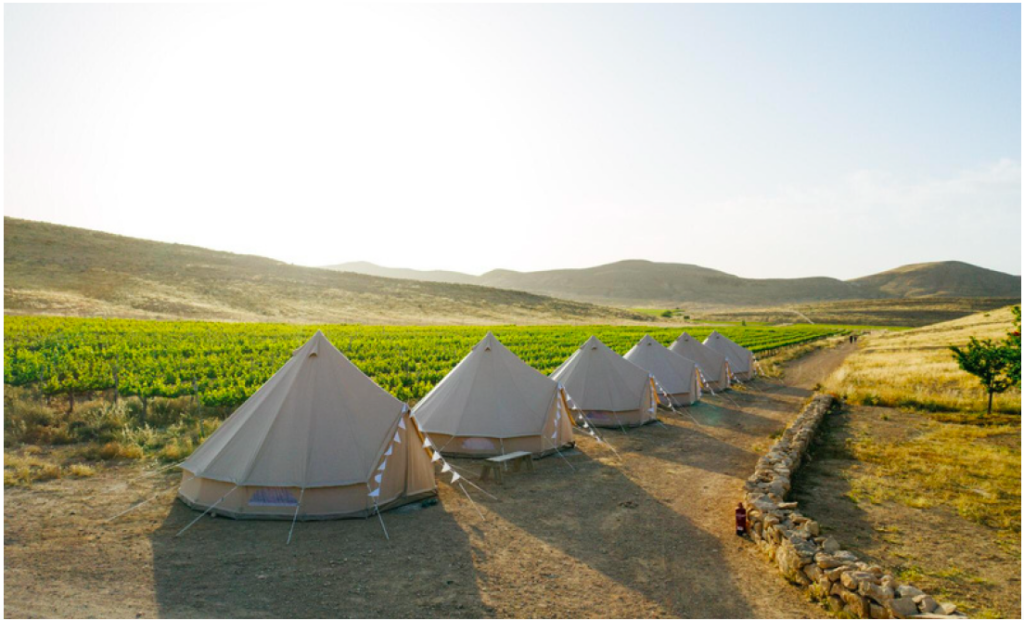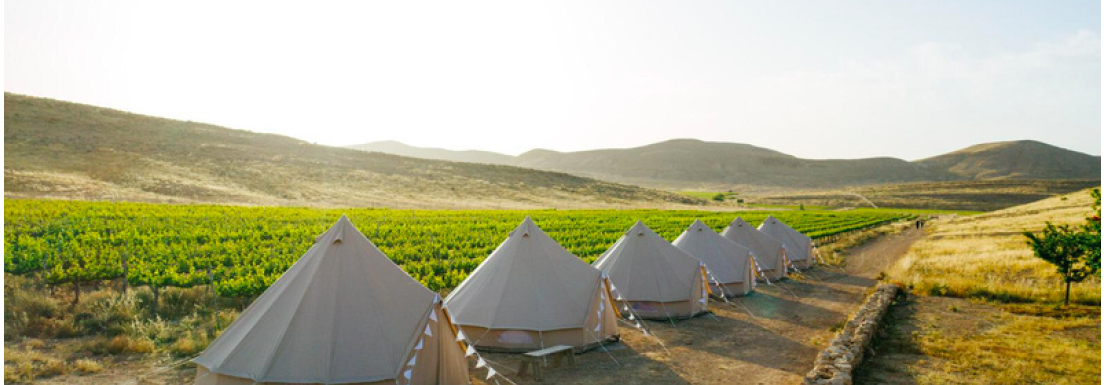Stunning, innovative and sustainable wine tourism destination
Awarded with the Iter Vitis Award last November, for its innovative approach, the Negev Wine Route includes 22 wineries and 35 vineyards dedicated to creating outstanding wines from the unique terroir of the Negev desert. The arid Negev is undoubtedly one of the most hostile regions for growing vines, but also carries veiled virtues – which, like many elements of the desert, invite visitors to an experience of discovery and exploration. For the grapes, these virtues include sharp temperature drops between day and night which contribute to the grape’s ripening, dry air which thwarts rotting and pests, and cold winter spells that toughen the vine; all of which contribute to the creation and distinction of a palpable local typicity.
Over the past two decades, Israel’s Negev desert has been the dramatic backdrop to the renewal of an ancient agricultural tradition of vine cultivation and wine production. New vineyards have been planted on the archeological remains of 1,500-year-old agricultural terraces, and pioneering agricultural ventures are at the forefront of Israeli agricultural R&D, producing fine wine grapes in an arid climate and crafting cutting edge Agri-tech solutions for the challenges that many wine-growing regions are currently facing due to global climate change.
In general, Negev grapes yield light wines that are pleasant to drink young andare also highly suitable for maturing and developing over time. White grapes, such as Chardonnay, Chenin Blanc, and Sauvignon Blanc, are harvested before the acidity levels drop, leading to crisp and minerally white Negev wines, with echoes of stone fruits. Red grapes grown in the region, such as Malbec, Merlot,Cabernet Sauvignon, and Petit Verdot often have thin and unripe skin, yielding a light and cheerful flavor.
The unique terroir, coupled with archeological and historical heritage has transformed wine tourism in the Negev into a blooming, multi-layered experience which is truly unique to the region. Situated on the foundations and legacy of the ancient Nabataean frankincense and myrrh routes, wines produced in the Byzantine era were known throughout the empire, with evidence of export to markets throughout the ancient European continent –from modern day Greece to France and Great Britain.
for more information visit:

